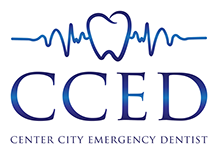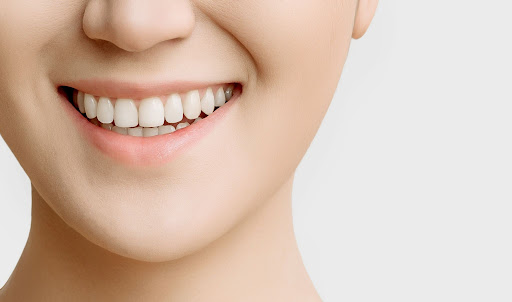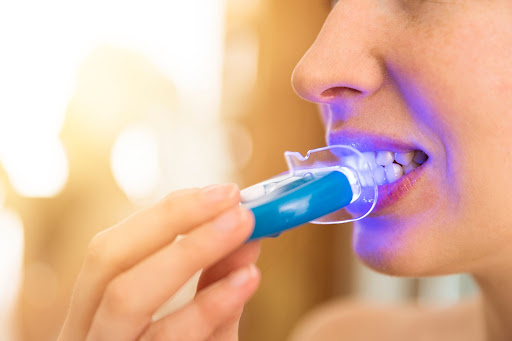As you schedule an appointment for your dental implants in Philadelphia, you might be wondering if the coronavirus influences the health of your teeth. After all, the dangerous virus has been shown to cause tremendous damage to other parts of a victim’s body, such as their lungs. However, there is no definitive evidence of the effects of COVID-19 on teeth, as we are still learning more about COVID-19 every day. Many who have contracted the virus have reported damage to their oral health, and even those afflicted who no longer have the virus have noted changes to their oral health. Here’s a look at several ways the virus can incur damage to oral health after the coronavirus.
COVID-19 Might Impact Blood Flow in the Mouth
One theorized connection between COVID-19 and teeth is the virus’s negative impact on the body’s blood flow. Healthy blood circulation is an essential bodily function. It allows for red blood cells to deliver oxygen throughout the body, white blood cells to conquer diseases, nutrients to flow to vital locations, and more. However, the coronavirus has proven to disrupt blood circulation throughout the infected body, creating clots and unhealthy flows in their system. This detriment can cause a wide variety of problems in one’s oral health, as the teeth and gums may not receive the proper amount of blood they need to stay healthy. Additionally, the jaw contains many blood vessels that can also be hit hard by the lack of necessary blood that the virus creates. The pain and damage caused by the hurt blood vessels may also linger and create long-term problems long after a patient’s initial infection.
ACE2 Receptors in Teeth May Be Susceptible to COVID-19
Another possible connection between COVID-19 and teeth is the presence of ACE2 receptors. These special proteins are located in several areas throughout the body, including the mouth and lungs, and assist with vascular activities. While they’re usually a helpful protein, the coronavirus can take advantage of them to wreak havoc throughout the body. The virus can hook onto the ACE2 receptors in the mouth, duplicate itself, and cause serious infections. Because many of these receptors are located in the mouth, it may be susceptible to the virus. Some scientists speculate that disruptions in the healthy functioning of ACE2 receptors can lead to a cytokine storm, where the human body’s immune system erroneously attacks itself.
Additionally, those who have poor dental hygiene are known to have more ACE2 receptors in their mouths. It has been shown the coronavirus may latch onto tooth cavities, so receiving proper dental care is one way to protect oral health after an infection.
The Coronavirus May Harm Teeth in a Variety of Ways
One’s oral health after coronavirus can be hampered in several ways. There have been many reports of COVID-19 and teeth damage, so some believe the virus can cause poor dental health. Here are three of the potential ways that the virus might hurt the teeth of an affected person.
Potential Damage to Tooth Enamel
Tooth enamel can potentially weaken from COVID-19. The enamel of a tooth is the protective outer layer that shields a tooth’s insides from things like extreme temperatures and regular use while eating. Some people infected by the coronavirus have reported enamel loss, which increases the sensitivity of the inner teeth and can make chewing discomforting, though whether or not there is a direct link between the virus and damaged enamel has yet to be determined.
Possible Tooth Chipping
Since the start of the COVID-19 pandemic, dentists have found a notable increase in tooth chipping and grinding. While these traits have been found in those suffering from an infection, the rise in chipping might be caused by anxiety brought about by the pandemic.
Chance of Tooth Loss
One of the most impactful dental issues the coronavirus can possibly create is teeth falling out. Because of the obstructed blood flow, teeth may no longer receive the nutrients they need to function and become loose. Numerous COVID-19 victims reported one or more of their adult teeth falling out, with some reporting that there was no blood present when it fell; potential evidence of poor blood circulation.
COVID-19 May Also Hurt Gums
Another potential influence of oral health after coronavirus is poor gum quality. Some people infected by the virus reported their gums were weakened, possibly because of the lack of proper blood flow. It’s also possible for Gingivitis, or gum inflammation, to occur because of COVID-19. However, it has not been observed in many patients and may be symptomatic of poor dental hygiene.
If you’re seeking to receive or repair veneers in Philadelphia and the surrounding area, contact the Center City Emergency Dentists today for help!


